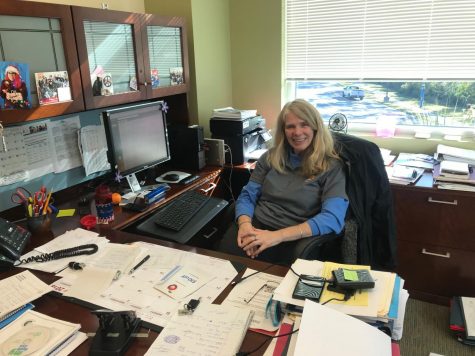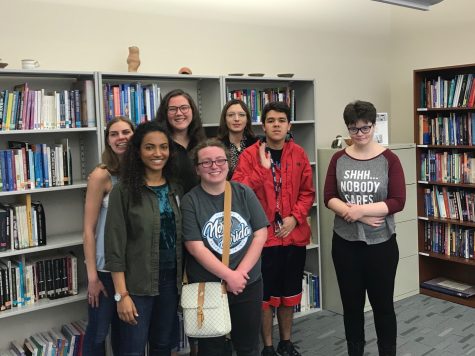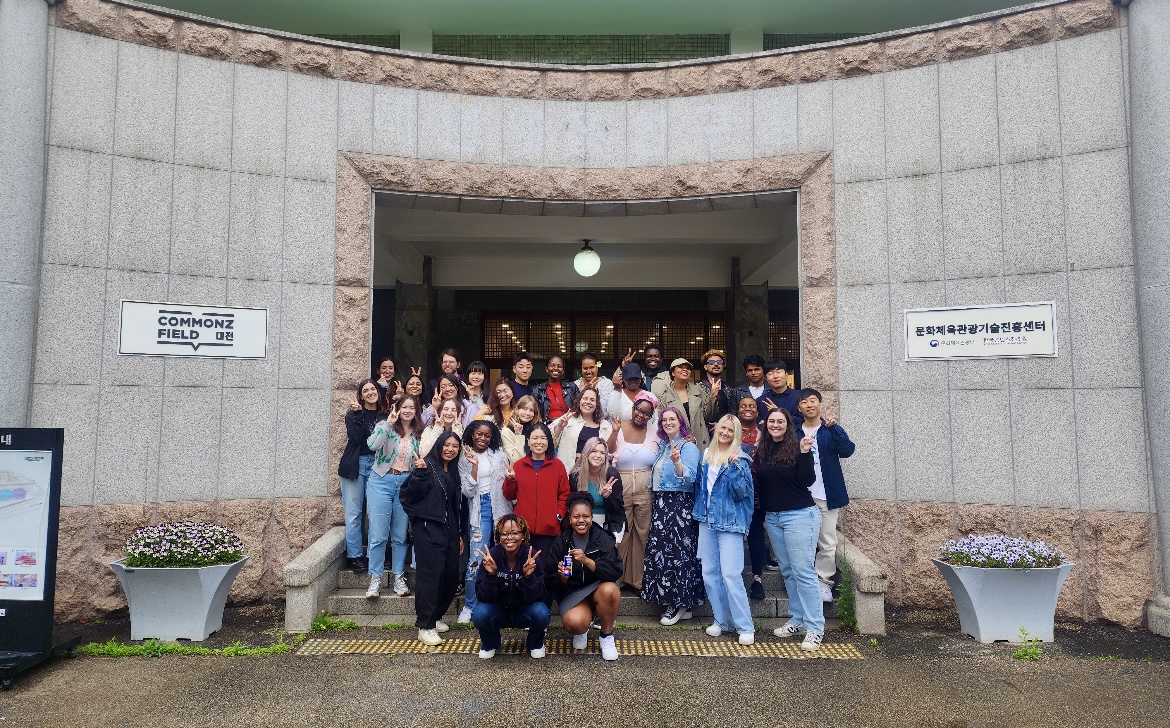For some people, life is about following your passion, and for the UNF On Campus Transition (OCT) Program Director Bernadette Gismonde, her passion is working with individuals who have intellectual developmental disabilities.
The OCT Program works directly with students who acquired intellectual developmental disabilities before the age of 18. The disabilities include down syndrome, autism, cerebral palsy, and other life-altering disorders that can cause difficulty learning, problem solving, adapting, and interacting with others. However, Gismonde sees a positive change in students within the program.
The 12-year-old program has served over 100 students, said Gismonde. Throughout that time, over 50 of the students have graduated. The students chose from either a two year degree or a four year degree.
Gismonde has been involved with OCT since May 2016, and she said, “I believe that the most important part of OCT is to help students experience what their peers experience without any boundaries.” She continued, saying, “OCT helps students grow and reach for higher skies.”
In an effort to raise awareness for the program and encourage people to get involved, Gismonde appeared before Student Government Senate on Jan. 12. She explained that the purpose of the program is to create interaction between students with and without disorders and help improve the student’s lives.

Sophomore and Social Work major Taylor Pederson volunteered last year and now works in the program as a Work Readiness Mentor. Pederson said they are always looking for more volunteers to come interact with the students. According to Gismonde, it is easier for the students to connect with other people their age.
Pederson loves that a person or group of people can have a positive impact on other people’s lives by getting involved.
“I think it is important that our students have the same resources, work skills, and opportunities they are meant to have,” Pederson said. She believes it is important to supply the students with the resources, skills, and opportunities that everyone else has.
Those who volunteer may help students with homework, go to class with them, or even just hang out. Many volunteers go with the students to games, movies, lunch, and other events, according to Director Gismonde.
Senior and Psychology major Firall Alemayehu, is also a volunteer. She said she first started helping students with disorders in high school, where she was part of the Best Buddies Club. Now, she volunteers with OCT in her free time.
One of the students in the program, Early Child Care major Brianna Nadeau, said she is in her second year. When asked what her favorite thing to do is, she said, “I like watching the boys play basketball.” Nadeau said she has an intellectual disability that makes learning more difficult. However, with the help of the program and volunteers, she hopes to become more independent and meet new people.

Another student, Maddie Stubboefield, also likes going to basketball games, but she said sometimes there is no one to go with her. Stubboefield goes to Twisted Tuesdays, Market Wednesdays, and movies with volunteers as well. She said she is taking things slow at the moment, seeing where one year at UNF will take her.
International Business major Danielle also has a learning disability, and she is in her second year with the program. She said she recently signed up to join Kappa Delta, hoping to create a bond with a sister she never had. Danielle was excited when she got a message from the sorority, asking if she would like to go out for coffee.
Danielle said, “I just want to feel like part of a team, like I belong, and I think joining a sorority will help.” Danielle sees opportunities laid out before her, and she doesn’t plan on letting her disability slow her down.
Another student that the program’s had a positive impact on is Madeline Duvall. Duvall is in her fourth year and said she has an auditory processing disorder and trouble with comprehension. Duvall also said OCT has really helped her get connected.
Gismonde said she is thankful that the negative stigma placed on those with disabilities in high school is done away with in college. Now, inclusion is part of everyday life, and therefore, the future seems brighter for students with intellectual disabilities.
“When I was in high school, kids with disabilities were placed in another room,” Gismonde said. She believes things are different today. “If you want to make an impact in somebody’s life, an hour a week can do it,” Gismonde said.
Currently, there are 26 students in the program and around 150 volunteers. Of those 26 students, 14 are leaving in the spring and 11 are graduating.
If you want to learn more or get involved as a volunteer, you can contact Director Gismonde at (904) 620-3892.
—
For more information or news tips, or if you see an error in this story or have any compliments or concerns, contact editor@unfspinnaker.com











